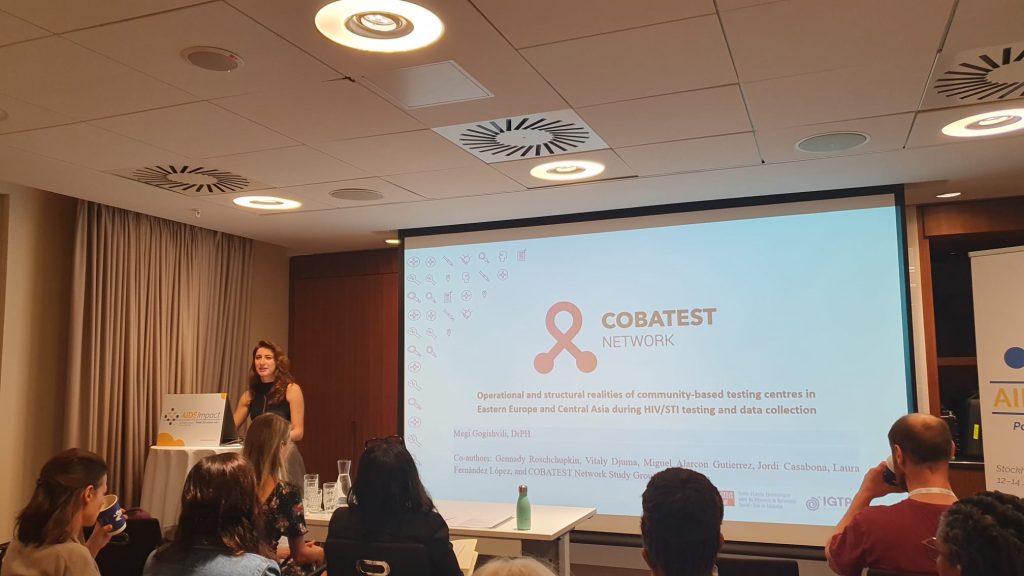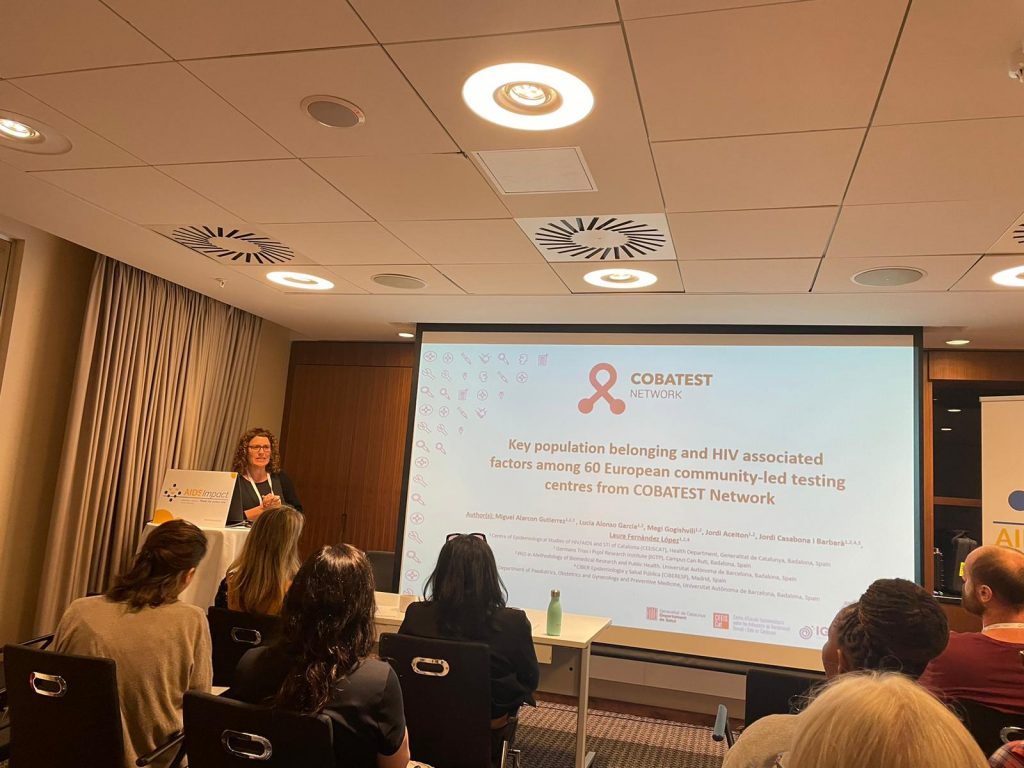
The AidsImpact conference took place from June 12th to 15th, 2023 in Stockholm, Sweden. Two abstracts were presented by COBATEST network at the conference.
Dr.Megi Gogishvili presented an abstract based on the quantitative and qualitative data collected through an online questionnaire from EECA members of COBATEST network, ECOM, AFEW, and Aids Action Europe in 2022.
A presentation was conducted on the results of an assessment of operational and structural realities and obstacles encountered by CBVCTs in EECA during HIV/STI testing and data collection. The data was based on the assessment of 20 CBVCTS, 8 from Eastern European countries and 3 from Central Asian countries. Majority of CBVCTs (14/20) depended primary on international grants and only few (2/20) operated mainly on a local governmental funds. Target testing population of majority of the CBVCTs were MSM (15/20), PWIDs (13/20), and SW (12/20). While 13 of CBVCTs provided assistance on how to navigate national health systems, only 1 provided legal counselling. All CBVCTs tested for HIV, 17 of them on HCV, 13 on HBV, and only 3 on Syphilis. Only 5 CBVCTs could perform confirmatory tests in their centers. Fifteen CBVCTs provided self-testing kits, however only 2 always received results of the testing. All participating CBVCTs collected data, 14/20 utilized both online and offline tool. Data is mostly collected for donor reporting purposes. However, interest was shown in being able to utilize collected data for improving services provided, informing future projects, and publishing articles. Primary themes identified in challenges named while testing and collecting data were: lack of funding (for personnel, tests), confidentiality and stigma, and political environment of the countries (restrictive laws, war). Please find full presentation online.

Dr.Laura Fernandez Lopez presented an abstract based on quantitative data collected by COBATEST network members from 2013 to 2022.
A presentation was conducted on a key population belonging and HIV associated factors among 60 European community-led testing centers from COBATEST network. 73,799 HIV tested people were included in the cross-sectional study, of whom 65.3% (n=48,168) belonged to some key population. HIV reactive testing general prevalence was 1.68% (CI:1.59-1.78), while in key population was 2.41% (CI:2.27-2.55) and 0.31% (CI:0.25-0.38) in non-key population. In the multivariate analysis in key population group, being younger (aOR=0.99; CI:0.986-0.999), a man (aOR=6.05; CI:4.44-8.24) or a transgender (aOR=10.02; CI:7.07-14.20), being migrant from abroad the UE (aOR=1.76; CI:1.52-2.04), less condomless penetration during last sexual intercourse (aOR=1.36; CI:1.19-1.55), previous STI during last 12 months (aOR=1.41; CI:1.17-1.71) and doing sexual work (aOR=1.56; CI:1.27-1.91) were significantly associated with HIV reactive testing. In contrast, in non-key population, associated factors to HIV reactive testing were being older (aOR=1.03; CI:1.02-1.05) and a man (aOR=1.93; CI:1.17-3.19). Please find full presentation online.

